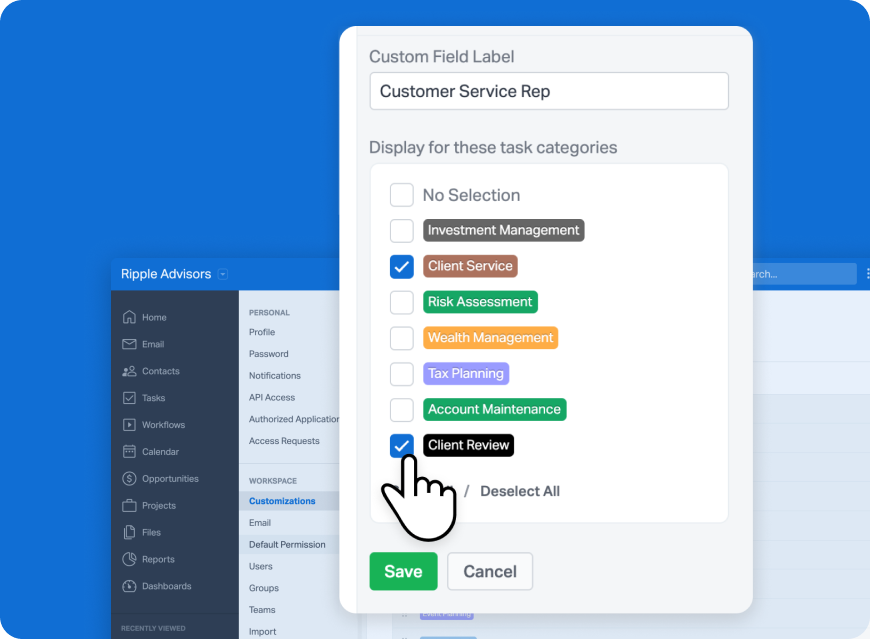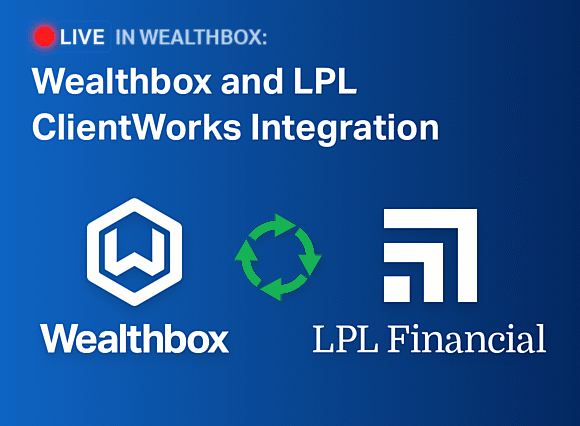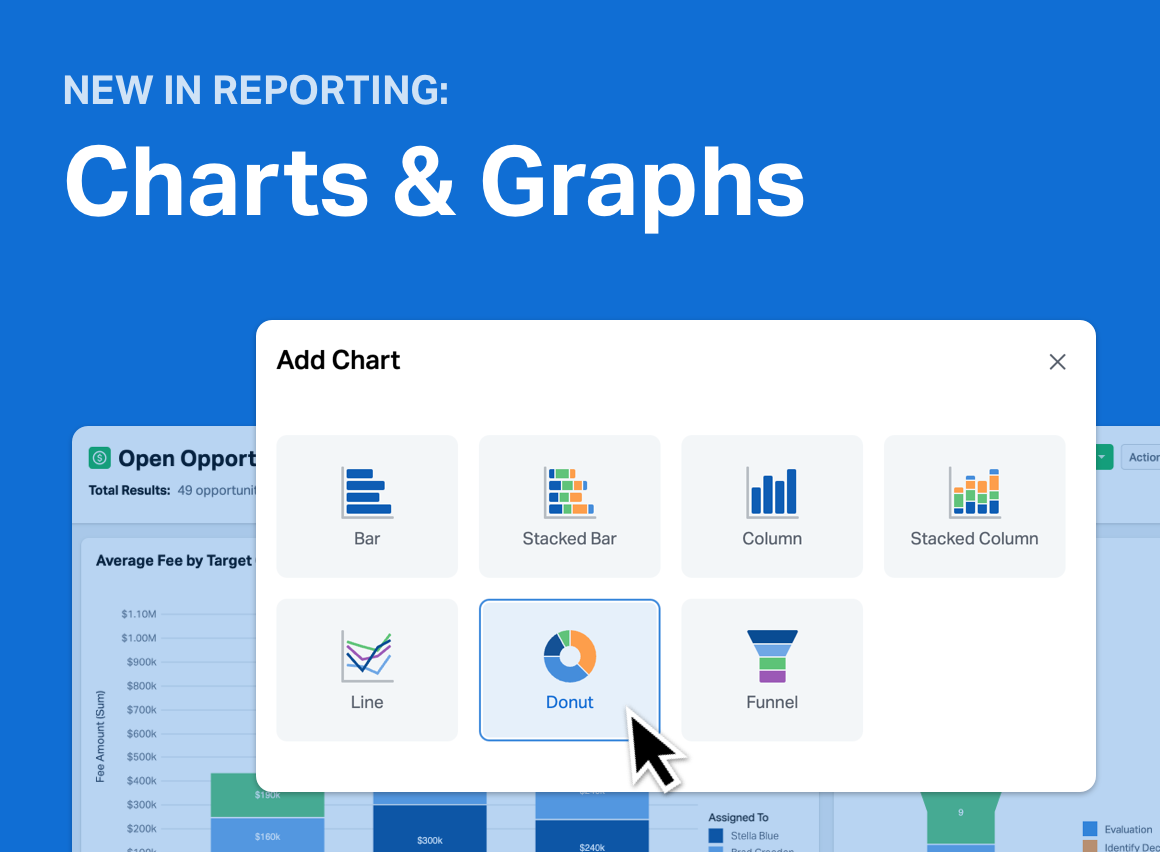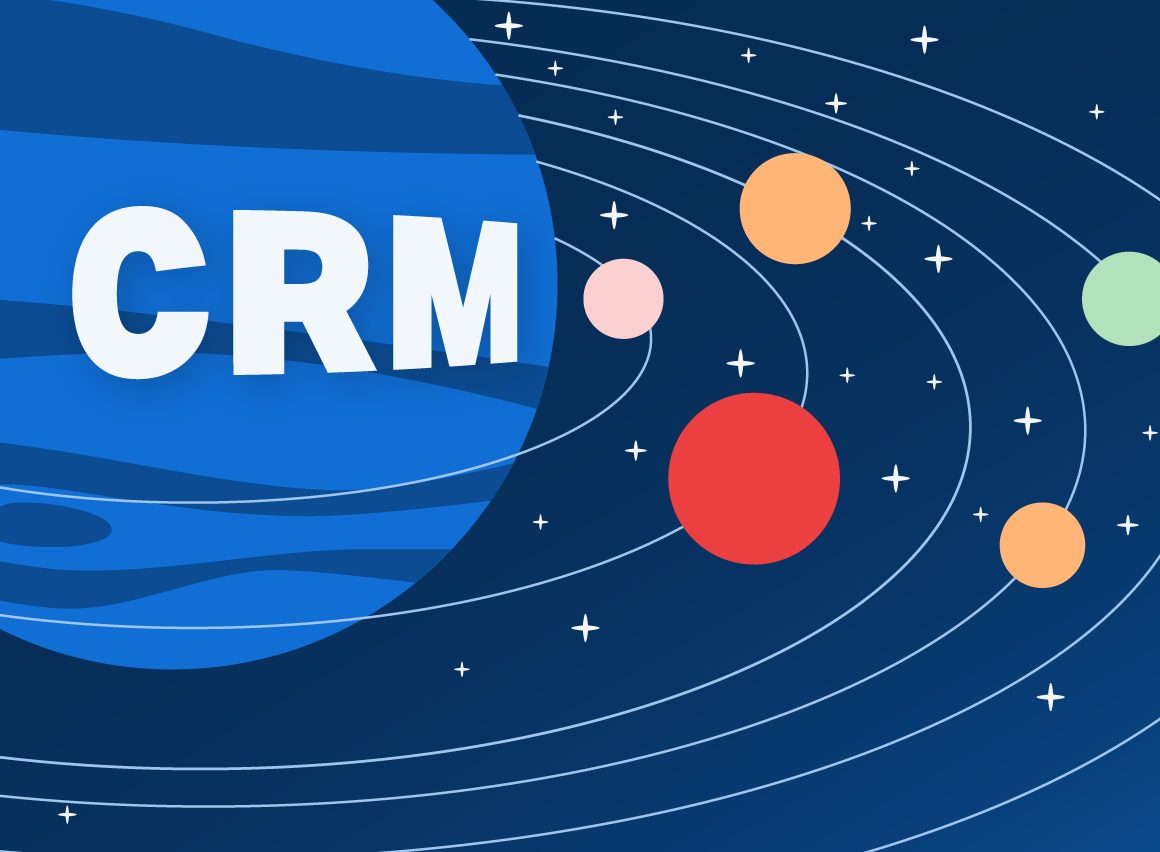
Most advisors know the benefits of using wealth-tech CRM software for client management, such as organizing contacts, tracking new prospects, and collaborating as a team with workflows to manage client interactions. However, there are some less obvious reasons why CRM is an important tool in the advisory space. Let’s take a look at seven of them.

1. Better Time Management
Financial advisors use CRM software to manage their time more effectively. With automated reminders and scheduling features, advisors can ensure that they never miss an important meeting or task. This allows them to focus on more important tasks and provide better service to their clients.
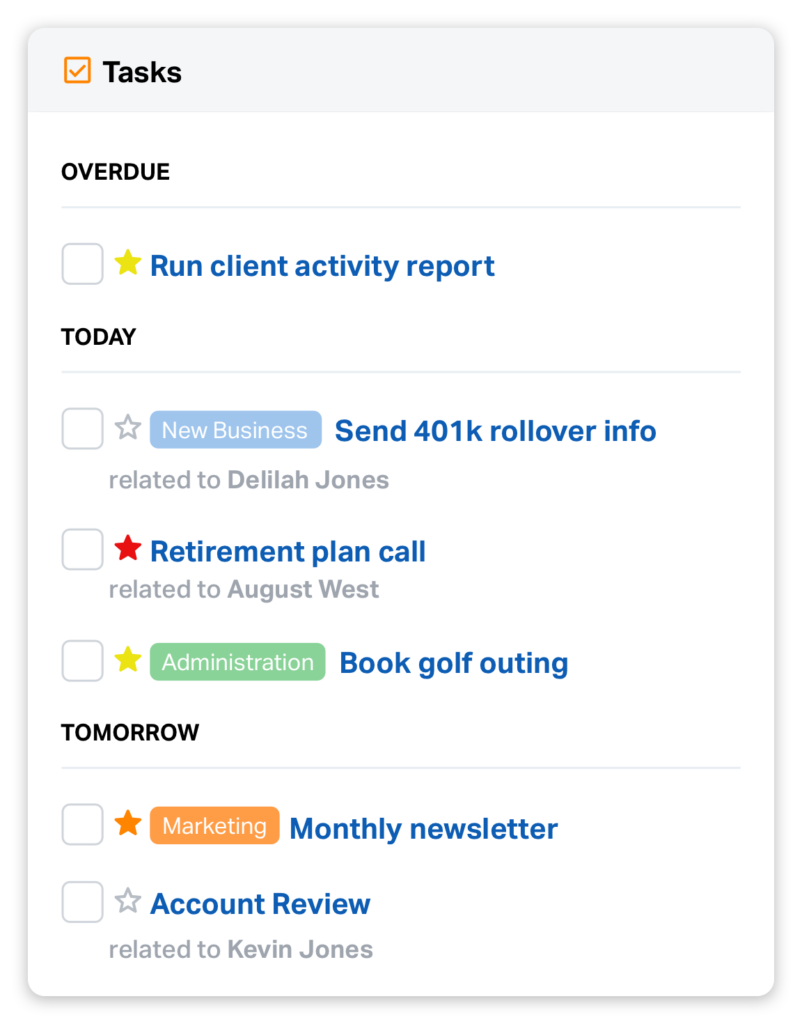

2. Improved Client Communication
CRM software helps advisors keep track of their client communication history. This includes phone calls, emails, and meetings. By having a complete view of their clients’ communication history, advisors can better understand their clients’ needs and provide personalized advice.
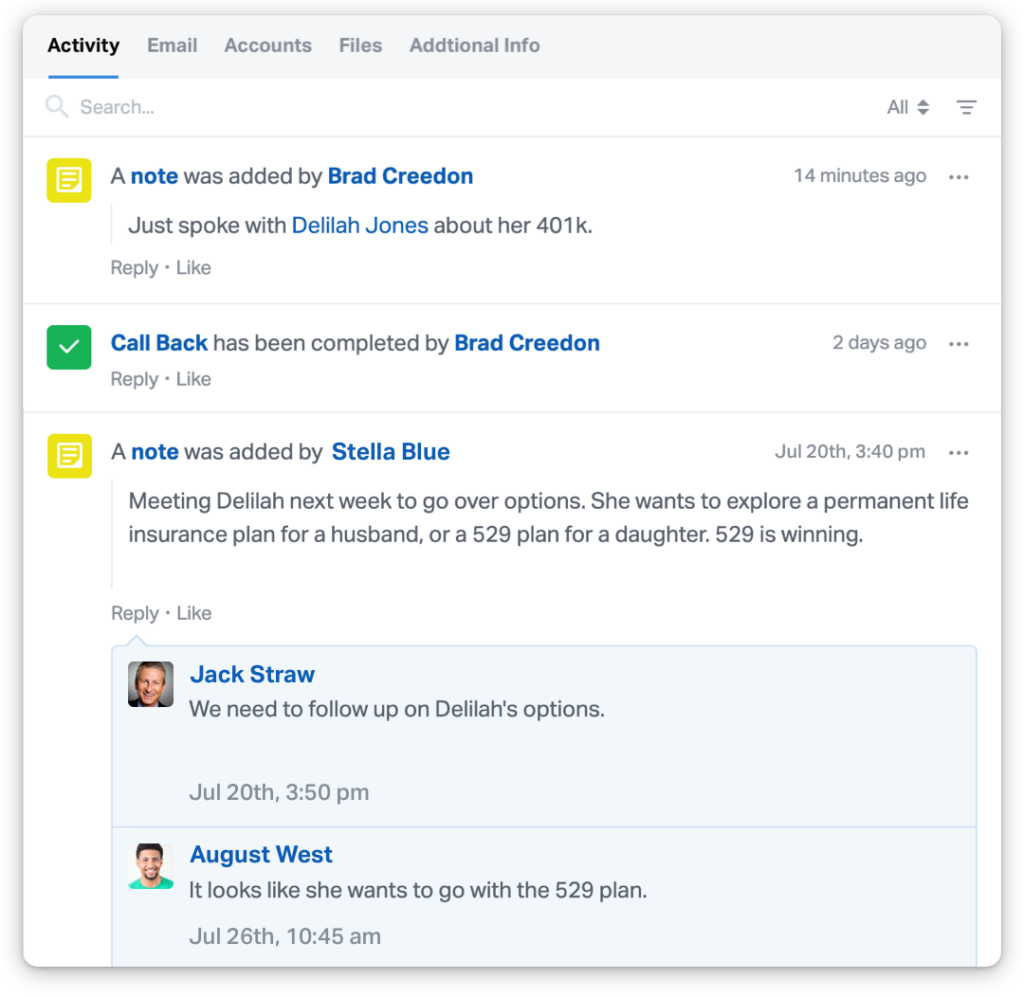

3. Enhanced Compliance
Financial advisors are subject to numerous regulations and compliance requirements. CRM software helps advisors comply with these regulations by storing client data securely, providing audit trails, and generating compliance reports.


4. Streamlined Operations
CRM software helps financial advisors streamline their operations by automating routine tasks such as data entry and report generation. This saves time and reduces the risk of errors. CRM is considered the “hub” of an advisor’s practices, with integrations to custodians and wealth-tech applications.
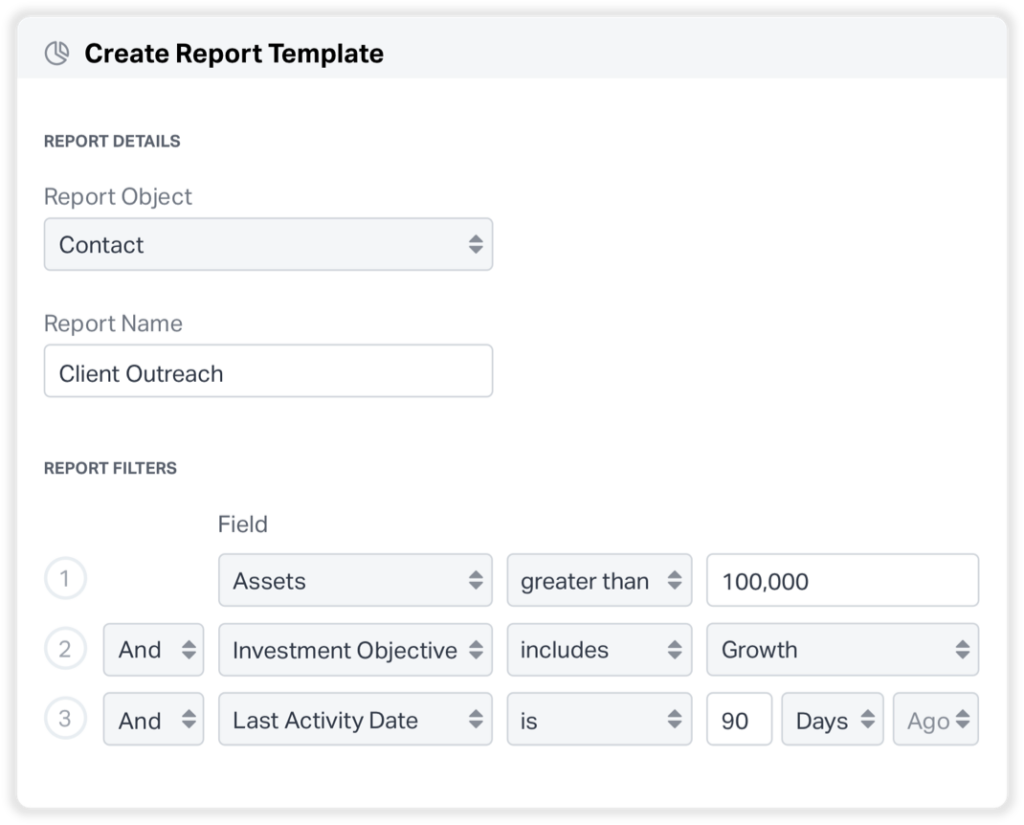

5. Easier Collaboration
With a centralized database of client information, everyone in a firm can access the same up-to-date information on clients, including notes from previous interactions and ongoing tasks. Some CRM software solutions, like Wealthbox, also offer internal messaging features with “social design,” allowing staff to collaborate with each other about specific clients or tasks within the same system, further streamlining the process.
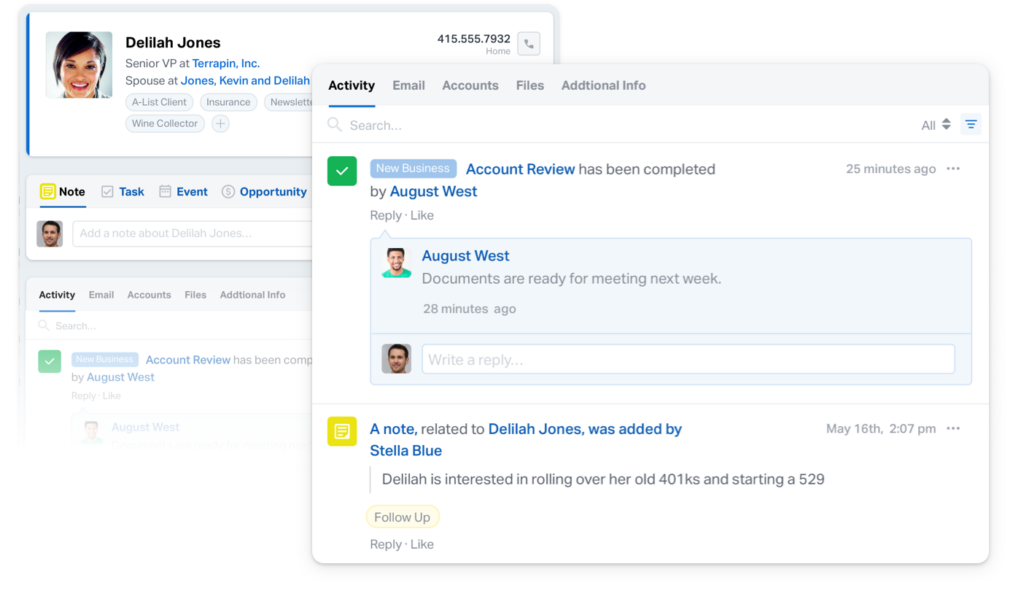

6. Improved Business Performance
By using CRM software, financial advisors gain insights into their business performance. This includes information such as revenue, client acquisition costs, and retention rates. This information can help advisors make data-driven decisions to improve their business performance.
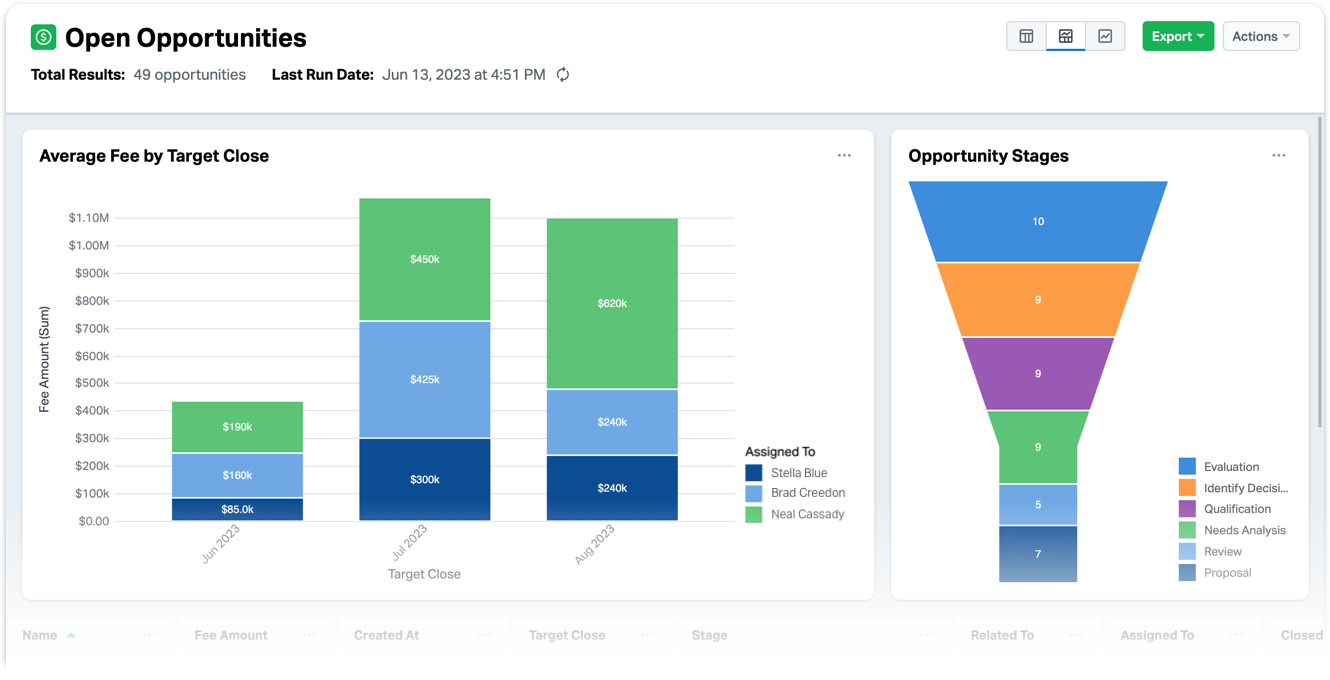

7. Selling a Business
If a financial advisory firm decides that it’s time to sell, potential buyers will take data quality into consideration when deciding on a purchase price. If they see that client data is clearly organized, with up-to-date notes, the firm immediately becomes more valuable. This is 101 in the M&A playbook for optimizing the sale of an advisory practice.
Looking to get started with CRM?
Sign up now for a free 14-day trial of Wealthbox.

